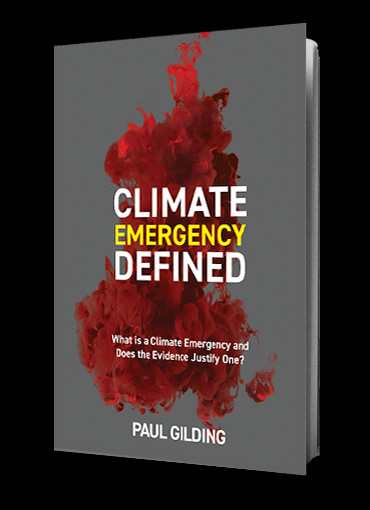
Australian Greens MP Adam Bandt has introduced the Climate Emergency Declaration bill into federal parliament of Australia.
Who in the ranks of the government dare to publicly acknowledge the extent our climate systems emergency?
Which of our government representatives, will take a peek out from underneath their blankets of fears, threats and silence, vote against their governments conformity to vested interests, and support this bill?
There are but a few Liberal MPs that have signed on to the Parliamentary Friends of Climate Action Group, and publicly said that our government needs to do more. Sadly there seems to be no more than about six of them. This is only about 8 per cent of the governing majority, and is much smaller than the coalition MPs. Such a small figure can hardly be representative of a majority of the Australian public that would like more comprehensive climate policy.
"Monash Forum" coal lobby collective that claimed to have at least 20 MPs. There is likely to be a similar sized coal support group in the ALP. Six Liberal MPs that can climate-think rather than coal-think is likely more than enough to tip the balance on a house vote, if added to the non coal-addicted Greens, Cross-bench and ALP.
Australia's climate situation is already dire. Human life in Australia is under "existential risk" for those that have experienced it directly. We have all seen the fires. Our country in drought. It is all there in the Bureau of Meteorology annual climate statement for 2019. More extremes of high summer temperature harass our heat sensitive suburbs and regional agriculture. Australia's driest year on record. We cannot all afford to live within a kilometre of cooling ocean shores.
2019 was Australia's warmest year on record. Australia's area-averaged mean temperature for 2019 was 1.52 °C above the 1961–1990 average, well above the old record: +1.33 °C in 2013. Mean maximum temperatures were the warmest on record at 2.09 °C above average, also well above the previous record, which was +1.59 °C in 2013. Mean minimum temperatures were 0.95 °C above average, the sixth-warmest on record. - Australian BOM annual 2019
Average global land surface temperatures have been rising 0.28 degrees C every decade, for 5 consecutive decades, since 1970, due to our global fossil fuel civilisation adding gases to our atmosphere. Including exports, Australia is a leading global contributor. We will be passing 2 degrees of global average land warming by 2040, in another 2 decades. Australia will have more than this average land warming, due to its latitude range. While the rate of warming is almost linear so far, the impacts of climate change are likely to get rapidly much worse, beyond ability of adaption of natural systems and civilisation. Economic costs of not acting already exceed the costs of action.
It seems likely that we are seriously underestimating both the level of risk we face and the level of urgency required. - Climate Emergeny Defined
It is all very well to say, that by slowing our growth of yearly additions of greenhouse gases from burning fossil fuels, and eventually cutting back, we can stop adding to our rates of extreme climate disasters, by 2050. This is still so far away, so-called "zero net emissions by 2050". Even the 2050 targets seem so irksome to fossil fuelled government politicians. To feed their fossil fuel addiction now, leads to more deaths and climate refugees later. Declaring a climate emergency includes the recognition that "winning slowly" is now the same as losing.
2050 targets will be too late to prevent global heating positive feedbacks, of ice melt, permafrost thaw, and natural methane seepage, natural system responses that are very likely push our global greenhouse into an irreversible hot-house earth syndrome. Global civilisation will be collapsing very fast by 2050. It will be hardly a voluntary path to zero emissions.
If it is ‘left to the market’, the economy will likely collapse under the weight of climate-driven instability - Climate Emergency Defined
That is why we have to declare a climate emergency now, in order to overcome the political bulwark of inertia and denial in our nation, built from accumulated wealth at the end of our fossil fuel age. The global climate emergency and hot - house earth systems collapse will be unstoppable, crushing all before it, before the end of this century, if rapid reduction of greenhouse gas emissions do not commence now. Observations of our reality of climate systems predicaments need to be brought into present consciousness, as an emergency. Our climate emergency is much more important, more real and future life threatening than the current alarms at a growing pandemic of CORVID-19 virus.
Paul Gilding has summarised the necessity of declaring a climate emergency in this document - "Climate Emergency Defined", a latest report available on "breakthrough online". It remains to be seen how long our nation-state of political denial can be maintained under the onslaught of real climate extremes.
The economic argument for a climate emergency mobilisation is also powerful — as well as avoiding severe economic risks the evidence demonstrates that the economic and social benefits could be considerable. - Climate Emergency Defined
Add Comment
This policy contains information about your privacy. By posting, you are declaring that you understand this policy:
This policy is subject to change at any time and without notice.
These terms and conditions contain rules about posting comments. By submitting a comment, you are declaring that you agree with these rules:
Failure to comply with these rules may result in being banned from submitting further comments.
These terms and conditions are subject to change at any time and without notice.
Comments